Elements of Nutrition: Top 10 Nutrients

Nutritionist and naturopath Buffy Ellen teaches the ten most important nutrients for a balanced diet, in an extract from her new book, Be Good: Plant-based Recipes for Everybody.
All diets can be nutrient-deficient due to a lack of variety, too many processed foods, or poor soil quality. An omnivorous diet is not automatically a complete diet, containing all the nutrients you need. Likewise, a vegan diet is not automatically healthy. Our omni could be munching mince pies all day, our vegan could be downing doughnuts! This is where the term whole foods comes into play. Eating vegan cookies and margarine might help save our planet, but it’s probably not going to supercharge your health.
Just as good health is not all about food, a good diet is not all about nutrients. So, while I think it’s important to be nutrient-aware (so you can answer those niggly questions from well- meaning loved ones), I don’t want you to become nutrient-obsessed… I hope the detailed information in this section will empower you with knowledge to feel confident about your plant- forward approach.
Nutrients can be split into macros and micros — those we need in large amounts, and those we need in small amounts. For each of the top 10 nutrients, I’m going to teach you what they
are, why you need them, how much you need and where you can find them. As well as busting a few myths along the way.
Protein
The recommended dietary intakes (RDIs) for Australia and New Zealand suggest on average we need around 0.8g of protein per kg of our body weight each day. Requirements are higher for children, and for women who are pregnant or breastfeeding, as we’re growing during this time, and for the elderly, as we lose muscle mass in our old age. Athletes need between 1.6 and 1.8g per kg of body weight, but no more than 25% of total calories is recommended due to increased risk of some cancers, potential implications for bone health, and also the fact that above this level it’s hard to achieve the RDIs for all your other essential nutrients.
Carbohydrate
There are no specific RDIs for carbohydrates, nor is there an upper limit, as needs vary so much according to energy expenditure. Some people thrive on a high-carb diet, especially active men, lean women, and children (this is my partner and babes to a T). Other people I’ve worked with, especially those aiming for weight loss, perform better on a more moderate carbohydrate diet, increasing their intake of nutrient-dense, energy- light veges. I recommend starting off with ½ cup of cooked carbohydrate-rich food per meal, and adjusting up or down from there.
Fat
Most fats we can actually make in our bodies, but some we need to consume. These are called essential fatty acids (like our essential amino acids in protein), and include omegas 3 and 6. On a plant-based diet you’ll be getting plenty of omega 6 naturally. In fact, if you’re consuming lots of processed foods made with refined versions of seed oils, you may be getting too much omega 6. Omega 3s are the only ones you really need to think about, and they are the ones I focus on in my book.
Iron
The standard RDIs are based on an omnivorous diet, where greater absorption of heme iron leads to higher overall absorption rates (18% for an omni diet, 10% for plant-based). It’s therefore recommended that plant-based eaters consume 1.8 times those amounts (14mg for men, 32mg for women). Those who need more relative to body weight are children and teens, menstruating women, and pregnant women.
Vitamin B12
2.4mcg of vitamin B12 per day is the current RDI for adults, but recent research has suggested 4–7mcg might be needed, due to low absorption rates. Malabsorption can be caused by impaired gastric function, a lack of other nutrients and coenzymes that help with absorption (iron, folate, vitamin E), co-consumption of alcohol and drugs, and aging. B12 is also surprisingly hard to cleave from animal protein and is degraded with processing, storage, and cooking, which is in part why many people are deficient, even if they’re eating animal products.
Vitamin D
To get our daily adequate intake of vitamin D, it’s recommended we get 15–30 minutes of sun exposure, before 10am or after 4pm in summer, and around midday over winter. If you’re fairer, you’ll need less; if you’re darker, you’ll need more. When we’re under 50 years of age, we can store six months’ worth of vitamin D in our bodies, to be used in winter. As we age, we’re less efficient at storing it, which is why older people need more.
Iodine
Your daily dose of iodine should be around 150mcg. There’s an upper suggested limit of 1100mcg per day, due to levels of 1700mcg being associated with elevated thyroid stimulating hormone (TSH). However, this is far above the recommended daily dose, so I wouldn’t worry about your sushi roll pushing you into excess.
Selenium
Selenium needs are basically related to weight. Toxicity is rare, and no adverse effects have been observed, even at 800mcg per day. But an upper limit of 400mcg for adults, and 90–280mcg for children is currently recommended.
Zinc
The regular RDIs are based on an omni diet, so for a plant-based diet it’s suggested we need up to 50% more due to differences in absorption. Changing how you prepare your food will increase bioavailability, so I would view these as high-end estimates. It’s also interesting to know that, in the case of zinc, plant-based eaters appear to adapt to lower intakes by increasing absorption and retention of zinc.
For more guidance on optimising your nutrition and gorgeous recipes to help you do it, be sure to pick up Buffy’s new book, Be Good: Plant-based Recipes for Everybody, Published by Bateman Books. More info at www.begoodorganics.com.
Aotearoa Vegan and Plant Based Living Magazine
This article was sourced from the Summer 2023 edition of The Vegan Society magazine.
Order your own current copy in print or pdf or browse past editions.
Disclaimer
The articles we present in our magazine and blog have been written by many authors and are are not necessarily the views and policies of the Vegan Society.
Enjoyed reading this? We think you'll enjoy these articles:
What’s in a Trademark?
What’s in a Trademark? 29 March 2024 The Vegan Society As more companies start to become more aware of the ingredients in …
NZ Vegan Chocolate Awards 2024
2024 NZ Vegan Chocolate Awards 25th March 2024 The Vegan Society One of the most wonderful foods our planet has to offer …
Plum and Lime Cake
Liked this? We think you’ll enjoy these recipes: Katsu Tofu Katsu Tofu The Vegan BBQ The Vegan BBQ 1 2 3 … …




